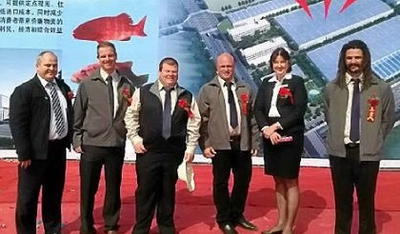For a start, there's $AUD300 million. That's the value of the deal in total.
Then there's 30, the number of local jobs tipped to be created as a result.

How about 100 tonnes per week or 5000 tonnes per year? That's how much live fish (grouper and coral trout) will be harvested to feed the Fujian province, which has a population greater than the whole of Australia (37.2 million)
"There is no doubt that this is a large project from an Australian perspective with respect to the size of the RAS (recirculating aquaculture system) facility, the total annual production and the capital investment required to undertake such a project.
"Indeed, at full capacity this single facility will be similar in volume to the total annual production of some sectors of the Australian aquaculture industry. It should be noted that no product will be exported from this facility as all fish will be consumed by local market demand."
The Chinese Government has targeted agribusiness as a priority, keenly aware of food security issues and the voracious appetite - literally - of the growing middle class.
Mr Missen said the deal, which would put the 16.6 hectare facility in Zhao'an, near Xiamen, came about after a solid two years' networking and relationship-building.
"There is no doubting the importance of this ground breaking entry of RADAQUA technology into the Chinese economy," Mr Missen said. "The opportunity to undertake a project of such magnitude and industry significance, in a country that is the largest aquaculture producer as well as the greatest importer of aquaculture product, is a challenge and an opportunity that RADAQUA is proud to be a part of."
The company has a client base in the Philippines, Singapore and China. It is also working in the Sultanate of Oman and Russia.
Here in Australia, RADAQUA has built many production systems and hatcheries for private and government clients, as well as providing consultancy services in the aquaculture industry.
Mr Missen said the company's expansion would create job opportunities for about 30 people.
"From direct employees of RADAQUA to contractors, support staff from supplying companies, ancillary industries, training and educational commitments associated with the project there is a broad spectrum of employment opportunities and economic stimulus associated with this project," he said.







